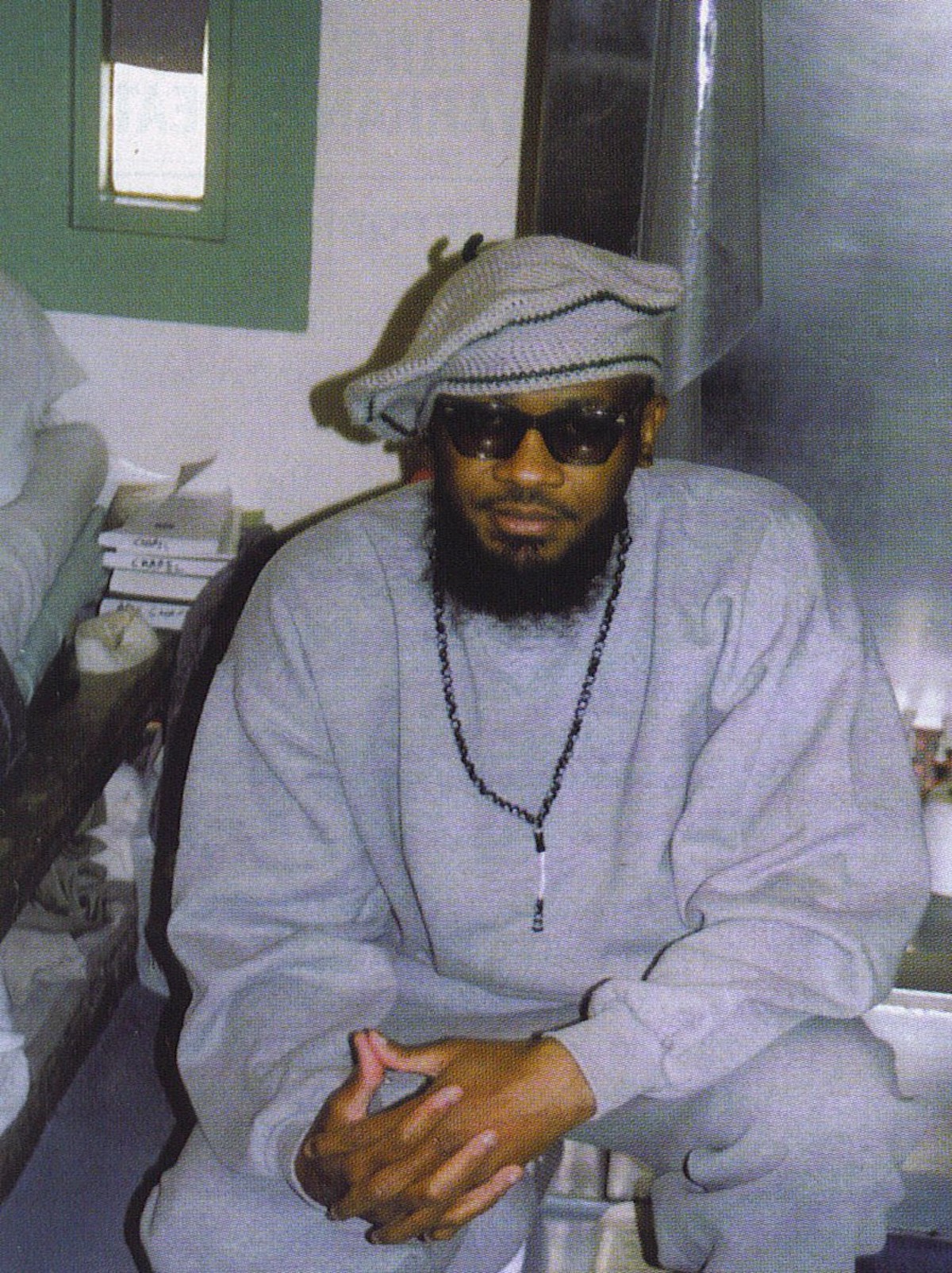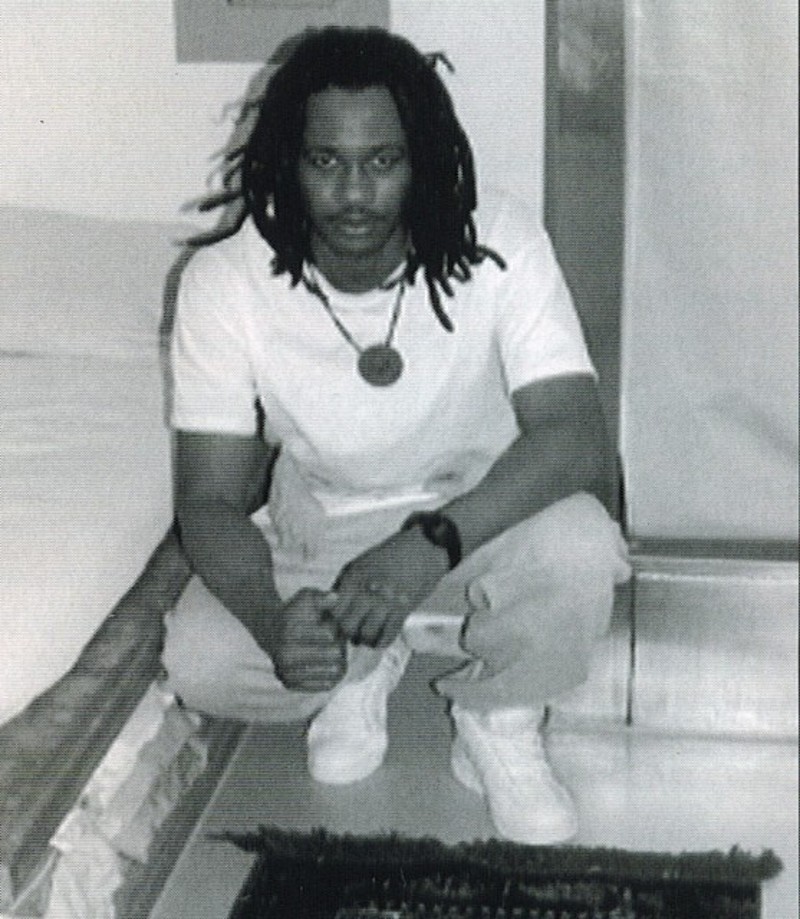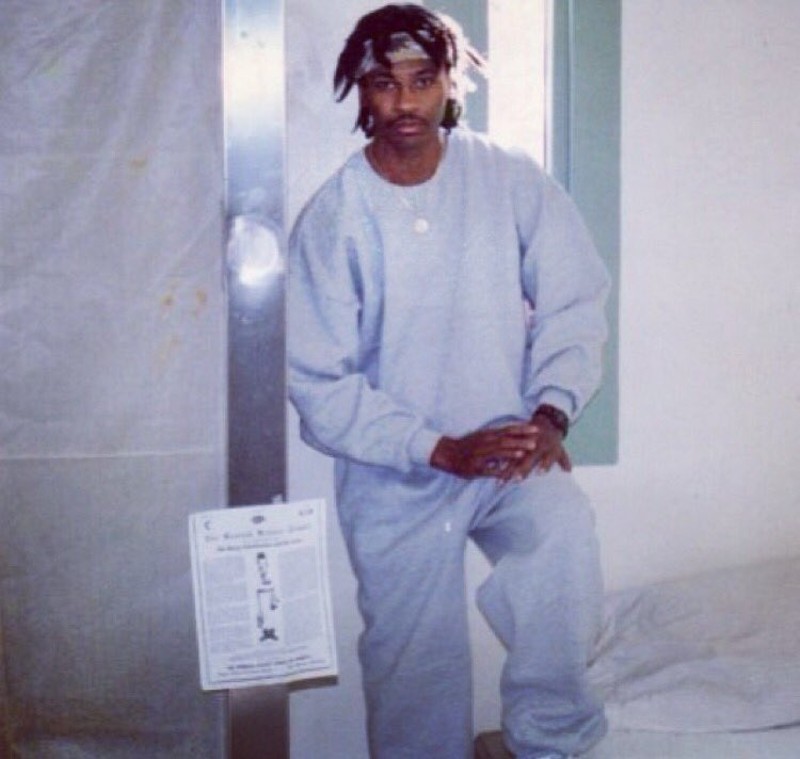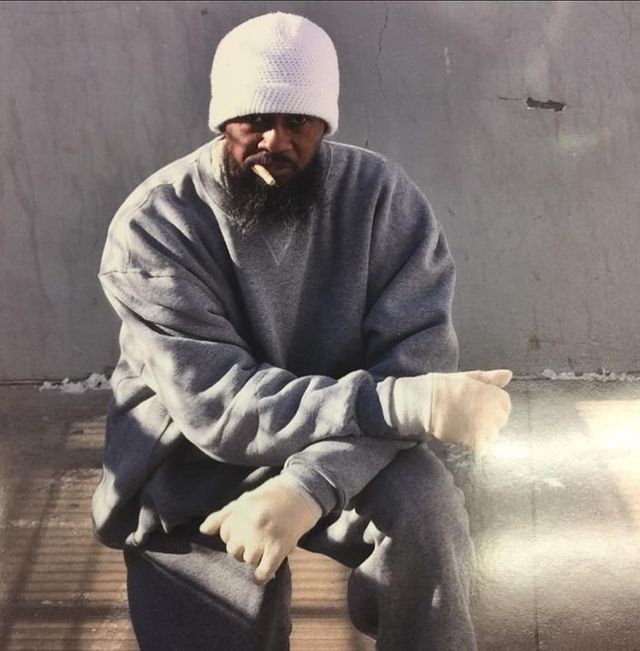Culture
Wayne “Silk” Perry: Smoothness, Sophistication, Slaying, and Supermax Prison
In the late ’80s and early ’90s, Wayne “Silk” Perry ruled the streets of Washington, D.C., by means of his lethal reputation.
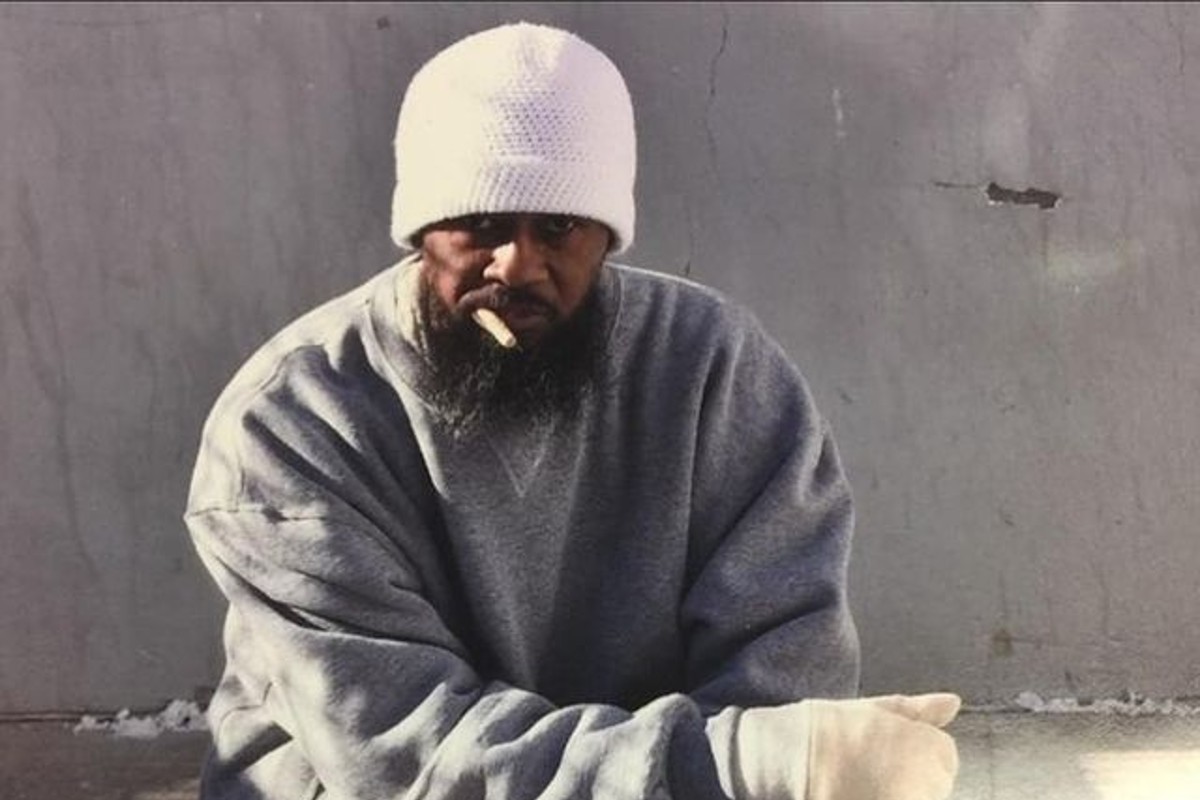
Some people called it Chocolate City. Others called it Drama City. ‘It’ was Southwest Washington D.C. The worst kind of ghetto – made up of tenement houses, fleabag motels, and rat-infested apartment buildings. Slums didn’t even begin to describe the poverty and squalor of the area.
Chocolate City was where Wayne Anthony Perry was born on November 14, 1962. He grew up on L Street, in the area called 203. 203 was one of the worst sections of Chocolate City. It had the worst drug problem, the worst violence, and the worst crime. The people who lived there had two vocational choices: sports or crime. Either one might provide a way out of Chocolate City. Lack of talent and poverty pushed most people to choose crime.
Wayne Perry was good at sports. So good that he was smooth. His smoothness earned him the nickname of ‘Silk.’ Bestowed upon him by his half-brother, who was called Lop, the nickname stuck. From that moment on, everyone knew Wayne Perry as Silk.
But crime was easier, and it paid better than a ‘could be’ ‘wannabe’ future in professional sports. Crime paid off right now. So, by the time he was 12 years old, Silk was seduced by the gangster lifestyle. He began as a ‘lookout’ for the older gangbangers as they hustled. Hustling refers to dealing drugs, robbing a store, and gambling. If he saw a police car coming, Silk would signal a warning, and everyone would split. In return, the older gangbangers taught Silk the art of hustling.
Silk was an excellent student.
By the time he was 13, Silk was applying what he had learned. Initially, it was gambling and petty theft. Soon, though, Silk graduated to bigger and better crimes. Con games, dealing drugs, and extortion became his featured items. In 1978, at the age of 16, he robbed his first bank. Robbing banks was easy and fun. So Silk kept doing it. He was making a lot of money.
When he wasn’t out hustling, if he had nothing else to do, sometimes Silk went to real school. He attended Wilson High School, which was – supposedly – a place to get an education. It was more like a gladiator school for gangbangers. At Wilson, everyone was hustling everyone else. More often than not, Northwest gangs and Southwest gangs engaged in gang fights and riots on the campus. It was one of those riots that sent Silk to jail for the first time. [Author’s note: most of the information in this article, including the quotes, came from U.S.A vs. Wayne Anthony Perry, CR No. 92-474, and from the Wayne ‘Silk’ Perry interview, which appeared in Don Diva magazine.]
It happened like this. Wilson High School had unarmed guards in every hall of the school. Which was the school’s attempt at keeping the peace. But it didn’t work. Free-for-all fights were everyday occurrences. One day a riot broke out and someone shot one of the guards. The police arrived and questioned the gangbangers, who pointed their fingers at Silk. Silk was arrested and charged with attempted murder. When his case went to court, it was tossed out for lack of evidence.
In his interview with Don Diva, Silk claimed he didn’t shoot the guard. The other gangbangers set him up to take the fall because they knew he “wouldn’t tell and I’d ride it out, so they lied on me.”
Wilson High School was less demanding than the courts. Wilson High School tossed Silk out rather than his case. So, he began attending Randall High School. But that didn’t last long. For as Silk told Don Diva, “I beat the baseball team coach with a bat at practice, and I got barred out of all D.C. public schools, so I went to Franklin GED school cause the judge ordered me to and I had to kill a fool for telling me he was going to take my chain.” Whether or not Silk murdered anyone at Franklin GED school was debatable. There was no arrest and no record of Silk’s involvement in a murder.
Silk was now hustling full-time.
In 1984, Silk shot and killed another gangbanger. The gangbanger, who was looking for Silk so he could kill him, found him. Pulling his gun, the gangbanger opened fire but missed. Silk returned fire, killing the gangbanger. The whole thing took place right in front of a police car, which was parked nearby. The police officers in the car testified that the murder was “self-defence,” but it was still murder. So, Silk went to prison.
They sent him to Lorton’s Youth Center One, which was one of the most violent and aggressive prisons of its time Going into Youth Center One was like going into combat in a war zone. The inmates had a ‘kill or be killed’ philosophy. Silk not only survived but honed his skills. Brutality became his new featured item.
When he got out of prison in 1987, Silk made a career change. He became a hitman – murder-for-hire. Murder and armed kidnappings became his meal ticket. And the heavy drug traffickers were the table he ate off. For the right price, Silk provided gourmet service. Silk didn’t do drive-byes or shoot across the street. He walked right up to his target, busted his gun, and shot them in the head. His rep for viciousness kept him out of court. No witness dared testify against Silk. And he kept his homies loyal with gifts of money and drugs. Silk took care of people, one way or the other.
Silk ran a whole crew of serious killers, dudes that took his orders and weren’t afraid to bust guns and get their hands dirty. He quickly established himself as the king of killers.
Then, in 1989, a Harlem drug lord named Alberto ‘Alpo’ Martinez was looking to set up shop in D.C. The recent conviction of Rayful Edmond, who was the premier D.C. drug lord, had left a vacancy. Alpo wanted to be the one to take up residency. Only he needed protection because the D.C. gangbangers were volatile, and they didn’t especially like interlopers moving in on their turf. Alpo had the drugs and was ready to deal, but he needed a shield to keep him safe. What he needed were some soldiers.
What he got was equal to an armoured division.
Even though he was new to Chocolate City, Alpo knew who Silk was. Silk’s reputation preceded him like the wind around a hurricane. Silk’s rep was that not only was he the Grim Reaper, but he also robbed and extorted drug dealers. The more weight a drug dealer moved, the more Silk liked ripping him off. Which meant most of the big dealers avoided Silk like the plague. And Alpo, who wasn’t stupid, tried to dodge Silk, too.
Eventually, though, the inevitable happened. Alpo ran into Silk.
There are two different versions of how they met. One version was Silk’s, and one was Alpo’s. Silk’s version of the story, as reported by Don Diva, went like this. “I met Po in 1989. I was out to destroy him over a lie a girl told me he said. I didn’t know him, he was scared to death, but he was with my close comrade Lil Pop, who asked me not to kill Po. The broad told me Alpo said he was putting a hit on me. When I ran into him, I didn’t know he was Po. I told Lil Pop I hear Po be with him and I’m trying to smash him so let me know who Po is. Pop said, ‘Why?’ I said he told this broad he was putting a hit on me. Pop said, ‘That bitch lied, if Po said that I would have smashed him.’ We were in the East Side Club, so then Pop said this is Po and Po begged me and said he never said that. So, Pop got the girl for lying.”
Alpo’s story of how he met Silk was a lot different. And, as one might expect, cast Alpo as a righteous dude. Alpo’s version of the story – as reported by Seth Ferranti in Street Legends – went like this. “Through Pop, a young wild 15-year-old coming out of Southeast D.C., killing anything moving I met the cat Wayne Perry, who at that time had the town locked on fear and was putting his murder game down. The kid Wayne wound up going to jail for a murder and no one was trying to get him out. The people he thought were going to get him out and come up with the money never came up with it.” Alpo saw an opening and took it. He bailed Silk out of jail. According to Alpo, Silk was so grateful he decided to pay Alpo back by handling security for Alpo’s drug business.
Both stories sounded a little like fantasy. Alpo was a smooth operator and a smooth talker, and Silk had a rep to maintain. So, they both embellished freely.
Whatever the truth was, Alpo and Silk hooked up. Silk supplied the muscle. Alpo provided the drugs. The Martinez Organization was the name of the gang. They quickly established themselves as the best team around. Before long, Alpo was moving 30 kilos of coke per day. The money rolled in while the bodies hit the floor. Silk was killing people left, right, and center. He and his crew of killers were taking care of business. The result was that Alpo had a ghetto pass. He could go anywhere, anytime, and not worry because no one in Chocolate City wanted to mess with Silk. Everyone knew that if they jacked with Alpo, Silk, like a hobgoblin, would show up and wreak havoc.
Alpo was swimming in money, living the high life. Cars, women, jewelry, a penthouse apartment—Alpo had it all. And he took care of Silk and his crew. Silk rode around in a 560 Mercedes Benz, wearing Versace clothing. Everyone was happy. Alpo was happy because he was getting rich and getting fat. Silk was happy because he got to do what he liked to do best – terrorize and kill.
Then everything changed.
The feds arrested Alpo on November 6, 1991. They hit him with a smorgasbord of drug charges, along with murder and conspiracy to commit murder. Then they tossed him into the D.C. jail, where a lot of Alpo’s enemies were awaiting trial. None of them would have grieved if Alpo woke up dead. Luckily for Alpo, Silk’s rep kept him safe even in jail. For Silk put out the word through the grapevine that anyone who touched Alpo would not live to get out of jail.
Even so, Alpo was scared to death. The Washington Post reported that when Alpo first appeared in court, “He sniffed loudly as tears welled up in his eyes.”
To make matters worse, the feds turned up the heat on Alpo. They decided to ask for the death penalty. And if they didn’t get it, they told Alpo they’d nail him with life in prison without parole.
Alpo’s defence attorney – who got 80 grand as a retainer fee – told him things didn’t look good. He advised Alpo to make a deal. If Alpo gave the feds Silk, suggested his attorney, the feds would cut Alpo some slack.
In his interview with Don Diva, Silk said the feds used Alpo to get to him. He was the real target. The feds wanted Silk, but because of his rep, no one would talk. Anyone foolish enough to snitch was as good as dead. So the feds put pressure on Alpo, hoping he would eventually break and squeal on Silk.
Whether or not that was the truth, Alpo decided to make a deal. Alpo told the feds that Silk had killed Garrett ‘Gary’ Terrell. It happened like this. Alpo and Terrell had been putting together a major drug deal involving $6 million worth of cocaine. One hundred kilos of coke. Alpo would pop for $1.5 million, while Terrell would pop for $500,000. The other $4 million would be paid after they sold the coke. Only Terrell was setting Alpo up. Terrell planned to kill Alpo and walk off with Alpo’s $1.5 million and all the coke. Easy money, except that Silk found out about the double-cross before it happened. Silk killed Terrell. Shot him seven times in the head, then dumped his naked body in Rock Creek Park.
Alpo also told the feds that Silk had murdered a woman named Evelyn Carter. Carter was a hooker who had been cooperating with a police investigation of Silk. The police were trying to connect Silk to the murder of a drug dealer named Michael ‘Fray’ Salters. And Evelyn Carter could connect the dots. To make sure Carter couldn’t testify, Silk killed her. He stabbed her in the face, then shot her five times.
While Alpo was talking himself blue in the face to the feds, Silk was arrested for selling an illegal substance. This meant Silk had tried to sell cocaine to an undercover police officer, who arrested him. The police tossed Silk into Prince George’s County Jail, where he awaited trial. As Silk cooled his heels in jail, the feds were putting together an air-tight case against him.
When Silk walked into court on December 4, 1992, he expected to plead guilty to one count of selling an illegal substance. He would receive a fine and a short sentence. It didn’t happen that way. Instead, Silk was arrested by the Safe Streets Task Force and charged with the October 23, 1991, murder of Garrett ‘Gary’ Terrell “in furtherance of a continual criminal enterprise.”
They took Silk back to D.C. and tossed him into jail there.
On December 5, 1992, the headline of the Washington Times read ‘Suspected Hitman Arrested in ‘91 Killing.’ The article identified Wayne Perry as the top hitman for the Martinez Organization, a gang that operated in New York, Virginia, Maryland, and Washington, D.C. Perry may have been personally responsible for six drug-related murders. He had been officially charged with the murder of Garrett ‘Gary’ Terrell, who was an infamous drug lord in the D.C. area.
Four months later, on March 6, 1993, the Washington Post reported that three men had been indicted as enforcers for the Martinez Organization, which had killed nine people in two years, from 1989 to 1991. According to a statement made by the U.S. Attorney, the 27-count indictment charged Wayne Perry, Tyrone Price, and Michael Jackson “with the executions of nine individuals as part of a coordinated campaign to protect and promote their drug organization. These defendants allegedly served as hitmen to eliminate witnesses, assassinate rival drug dealers, and murder disloyal gang members.”
The indictment alleged that Wayne Perry took part in eight of the nine alleged homicides. Among the people Wayne ‘Silk’ Perry allegedly killed were Michael ‘Fray’ Salters, Evelyn Carter, and Yolanda Burley.
Silk claimed he did not kill Fray. According to Silk, Alpo set the whole thing up to look like Silk was the murderer. Silk told the interviewer at Don Diva what really happened. “Yes, I was after Fray,” said Silk, “because he put a hit on me. He said he had to get me out of the way so he could extort Alpo. So I end up finding out about the hit on me and I got at those in Fray’s crew who took the hit and let him know that he was next. But I couldn’t track him down. So Alpo and them set it up for Fray’s close buddy to hit him and then tell all Fray’s people that I did cause he was close to me too. The dude (Alpo) is a snake. All the time he (Alpo) was the one that did it and the dudes at the shop was in on it.”
Alpo, of course, had already told the feds that Silk had murdered Fray. He also told the feds that Silk killed Evelyn Carter because she was shooting her mouth off about who killed Fray. So Silk took care of it. After a Keith Sweat concert at Constitution Hall, Silk grabbed her and shot her.
In his interview with Don Diva, Silk admitted to killing Evelyn Carter. “May she rest in peace. If I would have let her talk, she would have told me the truth. But I wouldn’t have listened because I stand for loyalty and my loyalty was with that dude. That was my man, but he was a snake.”
“My man” was Michael Jackson, a member of Silk’s murderous crew, who was named in the indictment along with Silk. Silk told Don Diva that Jackson was the one who killed Fray for Alpo. After the murder, Jackson attended Fray’s funeral, where he told everyone that Silk had killed Fray. Evelyn Carter was there, too. She heard Jackson give up Silk for murder. So to cover himself for snitching and lying, Jackson told Silk that it was Carter who gave him up. So Silk killed her.
How much of this was the truth and how much was humbug didn’t matter. Silk was a stone-cold killer by his own admission to Don Diva.
Silk and his co-defendants pleaded not guilty. Presiding over the hearing was U.S. District Court Judge Thomas Hogan, whose reputation was irreproachable. No trial date was set. This was to ensure that the defendants had proper representation by experienced attorneys.
The prosecution decided to ask for the death penalty. On June 9, 1993, the Washington Post headline read: ‘Execution Sought in District; First Death Case Since 1971.’ The reason this was such a big deal was because, just the year before, the voters of Washington D.C. had rejected a law that would have once again allowed the death penalty. The initiative had been defeated by a 2 to 1 ratio. However, Silk was to be tried under federal law in U.S. District Court. A 1987 federal statute provided for the death penalty in cases where defendants were convicted of murder in furtherance of a drug conspiracy.
The feds weren’t messing around. They were measuring Silk for a casket.
Silk’s defence attorneys challenged the decision in court. Judge Hogan rejected their motions. Under federal law, there was no reason not to.
Wayne ‘Silk’ Perry was scheduled to go on trial for his life. But it never happened. There was no trial and no death penalty.
For on April 1, 1994, the Washington Post headline screamed out: ‘Killer Cops Plea, Gets Life Sentence in Five Murders.’ April Fool’s Day! Only no one was fooling. Silk had cut a deal with the feds. He pled guilty to five murders and to participating in a continuing criminal enterprise. Silk confessed to the murder of Domenico Benson, who was killed because he slapped Alpo’s wife, and to the murders of Evelyn Carter, Yolanda Burley, Alveta Hopkins, and Garrett Terrell. In return, the feds agreed to drop all other charges and not impose the death penalty at sentencing.
Years later, in his interview with Don Diva, Silk said he cut the deal because he was afraid of Alpo’s lies. Alpo’s lies – possibly – would have resulted in Silk’s execution. “I am a very loyal man,” said Silk. “I don’t fear nothing and no one but God. The fear of weaker guys put me in prison. Alpo made false statements and told countless lies that got me five consecutive life sentences. Make no mistake about it, Alpo is a spineless coward, a rat of the highest order.” Silk also claimed he was a political prisoner, the victim of racism. “I maintain that this criminal justice system is corrupt and that these so-called African American men are its prey.”
Silk went on to tell Don Diva, “I didn’t cop out because of the death penalty. I live to die. I copped out to make sure others didn’t get life. I took the bull by the horns to save others. That’s the kind of man I am.”
In other words, Silk was proud of not being a snitch. By inference, he was proud of being a murderer too. And in the Don Diva interview, like a dog returning to its own vomit, Silk’s two favorite topics were Alpo and Silk. He kept circling back to them. According to Silk, Alpo was a pit viper, injecting everyone around him with poison. While he himself was a stand-up guy.
Silk lived by a self-indulgent code of honor, which approved of murder but disapproved of snitching, especially if he was the one being snitched on. Silk espoused a popular doctrine called ethical pragmatism, which always turned out to be the doctrine of self-interest. It’s a pathological and narcissistic philosophy.
The Judge sentenced Silk to five consecutive life sentences without parole and then tacked on five years’ probation. Silk’s common-law wife, Twala McClain, tried to stand by her man. After Silk was sentenced, his wife told reporters, “I’ll always be there for him. He was good to me.” But she later divorced him.
In March of 1994, 32-year-old Wayne ‘Silk’ Perry left Chocolate City for the last time. Shackled and handcuffed, U.S. Marshals escorted him out of D.C.
Alberto ‘Alpo’ Martinez entered the federal witness protection program. It was as if Alpo dropped off the face of the earth.
Silk was gone, but his name lived on. Silk’s legend started to grow. On the streets, they talked about him with awe in their voices. They pumped up the volume of Silk’s life. Silk was a killing machine without peers. He was idolized as one of the Top Five Killers out of D.C. when it came to the murder game. Don Diva magazine called him “the Michael Jordan of the murder game.” People compared him to Billy the Kid of Wild Wild West days. Silk had been the King of Drama City.
But even though Silk lived on in legend, things changed. Hip-hop music came on the scene, along with rap. Mix-Unit put out a DVD about Alpo, glorifying him for being one of the baddest dudes around. The street rags, Don Diva Magazine, along with F.E.D.S. Magazine, ran occasional articles about Silk and Alpo. Canonizing in tone, the articles’ intended audience were gangbangers, who, by dint of dwarfed thinking, aspired to be like Silk.
It was sick.
The outcome of such thinking and the lifestyle of “banging” never match the broadcast sales pitch. The reality of “banging” is you end up dead, or you end up living out your days like a rat in a cement cage.
Today, Silk sits in the isolation unit of the Supermax prison in Florence, Colorado. Locked down. Silk has taken on religion. He is now part of the Nation of Islam. No longer is he Wayne ‘Silk’ Perry. Now he is Nkosi Shaka Zulu El. He sustains his victimization at the hands of a conspiratorial and repressive government. In other words, he believes he is persecuted because of his race, not because he’s a brutal killer.
-

 Alternative/Rock7 days ago
Alternative/Rock7 days agoThe Warning Shake the Foundations of a Sold-Out Leeds Stylus [Photos]
-

 Alternative/Rock10 hours ago
Alternative/Rock10 hours agoThe Cruel Knives Headline Top Night of British Rock at Manchester’s The Lodge [Photos]
-

 Music2 weeks ago
Music2 weeks agoTake That (w/ Olly Murs) Kick Off Four-Night Leeds Stint with Hit-Laden Spectacular [Photos]
-

 Alternative/Rock7 days ago
Alternative/Rock7 days agoThe V13 Fix #011 w/ Microwave, Full Of Hell, Cold Years and more
-

 Features2 weeks ago
Features2 weeks agoTour Diary: Gen & The Degenerates Party Their Way Across America
-

 Indie7 days ago
Indie7 days agoDeadset Premiere Music Video for Addiction-Inspired “Heavy Eyes” Single
-

 Folk1 week ago
Folk1 week agoKatherine Perkins Strikes the Right Tone with Her “Hold On” Music Video Premiere
-

 Country1 week ago
Country1 week agoBrooke Ashton Chats About Her “Someone” Single, Creative Process, and More!

